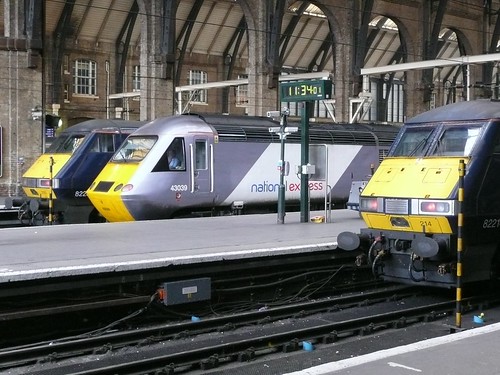The replacement programme for the Inter City 125, under the mismanagement of civil servants at the Department of Transport, continues to consume resources to no effect- several millions have already disappeared in consultancy.
The specification is calling for a train that can be both diesel and electrically powered, run at 140mph, comply with present safety requirements and weigh less than an HST. Alstom has already dropped out of the procurement programme and Bombardier looks likely to follow suit, which will still leave them with a juicy order for the Thameslink and London Underground replacement, so why should they bother. That leaves Siemens and possibly Hitachi in the running. Hitachi would probably offer a run-on of the train they have supplied for the Channel Tunnel Rail Link commuter services to Kent.
But the whole concept is looking increasingly un-feasible.
What is actually needed? It depends on what view is taken about the future of transport in a world of high energy prices in general and oil prices in particular. If cheap air travel is at an end and people are less inclined to use their cars, the need will be for higher capacity on the railways and speed will matter less. In fact, the railways themselves will also be under pressure to consume less energy, which will mean running at lower speeds.
So what would a sensible procurement policy look like? More rolling stock for 125mph maximum running and plenty of suitable traction. Electric locomotives would best be purchased off the peg, probably from a place like Japan whose standard narrow gauge designs would fit the UK infrastructure, and more electrification is needed to reduce oil dependency. For the rest, all options should be considered - the future might be the hydrogen fueled locomotive using a fuel cell, but that is always just over the horizon and it could be something else altogether.
I got involved in a discussion with a Youtuber called “Philosophy all along”. This was in connection with criticism of Trump’s policy of deporting illegal migrants, which he argued would be bad for the economy as it would reduce demand. This implies that there is a need to import people to sustain demand. There is no obvious reason why a population should not be able to consume everything that the same population produces. If it can not, then something else is going on. It is a basic principle that wages are the least that workers will accept to do a job. Wages are a share of the value added by workers through their wages. The remainder is distributed as economic rent, after government has taken its cut in taxes. Monopoly profit is a temporary surplus that after a delay gets absorbed into economic rent. Land values in Silicon Valley are an example of this; it's like a gold rush. The miners get little out of it. Rent and tax syphon purchasing power away from those who produce the g...

Kommentarer